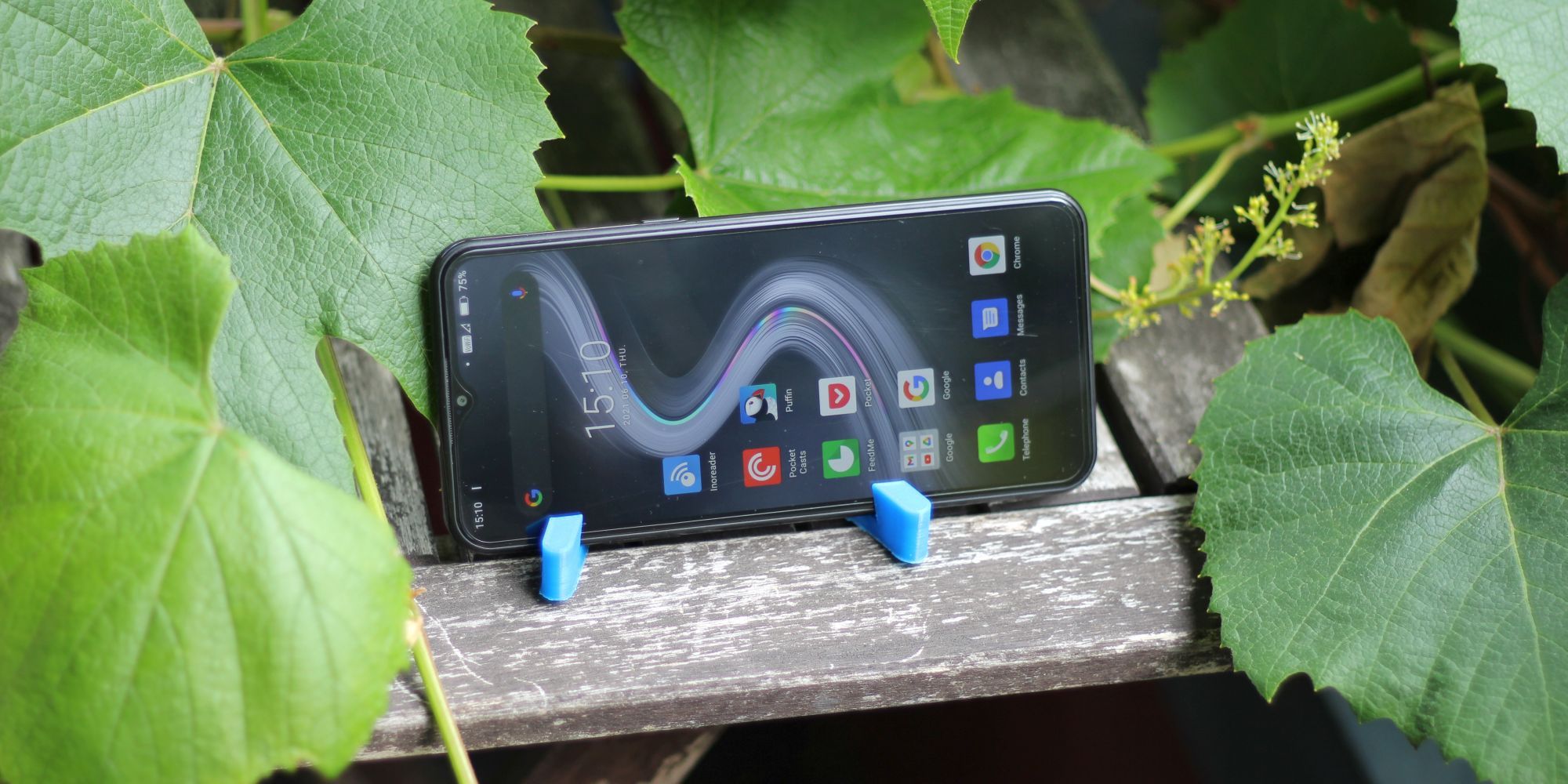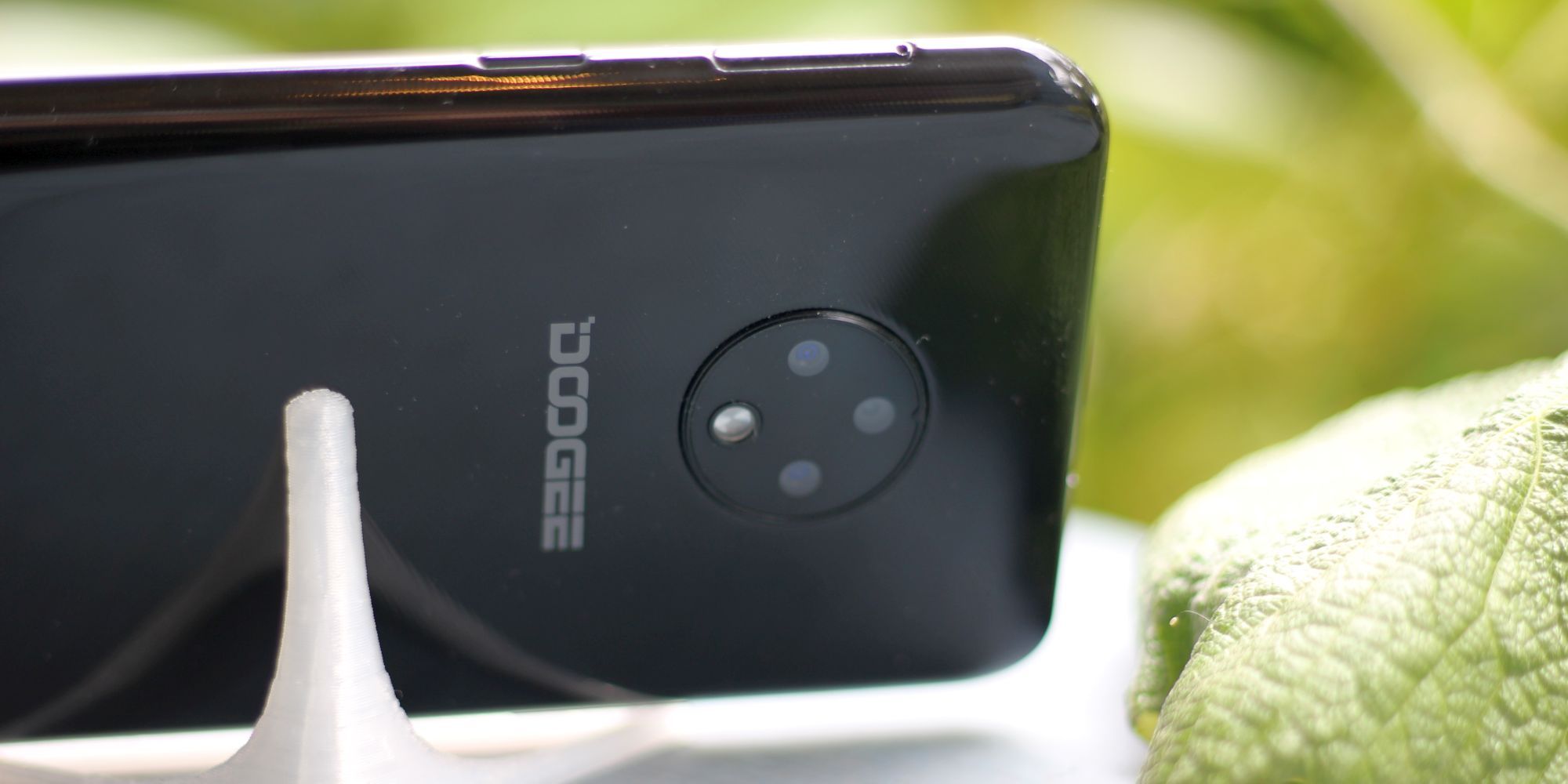Doogee X95 Pro Review: Best Phone Under $100
Posted by admin on
The Doogee X95 Pro is good as a temporary burner and travel phone, but a poor candidate as a daily-use device. However, if you notice a Black Friday deal come September, this is an easy purchase to make.
- VoWiFi
- Face unlock
- Unlocked
- GSM
- Brand: Doogee
- Storage: 32GB
- CPU: MediaTek MT6761D
- Memory: 4GB
- Operating System: Android 10
- Battery: 4,350mAh
- Ports: MicroUSB
- Camera (Rear, Front): 13MP
- Display (Size, Resolution): 6.52-inch, 1200x540
- Long battery life
- Good value
- Modern hardware
- 3.5mm jack
- Modern Android
- Bad Wi-Fi reception
- Limited 4G bands
- Micro-USB
- Unlikely firmware updates
The Doogee X95 Pro is the best unlocked GSM phone under $100. It's great as a burner phone, travel phone, and as a disposable device. But there's one big problem: the pandemic's impact on electronic prices makes it hard to find below $100.
Even so, the Doogee X95 Pro offers best-in-class battery life and hardware under $100. At over $100, there are better devices, such as the Samsung Galaxy A11 or Galaxy A10e.
The Best Phone Under $100 for Battery Life?
Phones under $100 revolve around temporary purposes, like travel or as burners. Both types of use need adequate cellular reception and good battery life.
Most users in this niche aren't looking for a gaming phone and couldn't care less about a high-end camera. Given its audience, this review focuses on cellular reliability and battery endurance.
Hardware Specifications
- Weight: 178 grams
- Dimensions: 167 x 77.4 x 8.9 mm
- Operating System: Android 10
- Display: 6.52-inch LCD with 1200 x 540 resolution
- RAM: 4 GB
- Storage: 32 GB eMMC with expandable Micro-SD card
- Cellular bands: B1 (2100), B20 (800), B8 (900), B5 (850), B3 (1800), B7 (2600) on both SIM 1 and 2
- Cameras: 13MP rear
- CPU: MediaTek Helio A20 quad-core Cortex A53 12 nm
- Battery: 4,350mAh lithium-ion
- Ports: MicroUSB; 3.5 mm audio jack
Is the Doogee X95 Pro's Hardware Good?
In the under $100 market, the X95 Pro's compares favorably.
The RAM and storage are unheard of in the under $100 smartphone market. Competing phones include 16 GB of storage and 2 GB of RAM. But at the $100-120 price range, the RAM provisioning and storage are average.
The X95 Pro's long battery life lies in its parts: an efficient 12 nm processor, large battery, and low-resolution display. Together, these components allow for at least five hours of screen time. Aside from that, there are no hardware features that stand out as either good or bad. For the most part, this is a solid, reliable, low-cost Android smartphone.
What's the Competition Around $100?
For less than $100, no other unlocked phones can challenge the X95 Pro. But the problem is that the X95 Pro rarely sells anymore for its original launch price of $60. But even so, thanks to the pandemic's impact on prices, few models on Amazon offer equal value. It currently retails most places for $120, though Banggood has it listed for $80.
A few phones that do beat out the X95 Pro include the Samsung Galaxy A10e and the Samsung Galaxy A11. But all told, these are more expensive than the X95 Pro. Below $100, it's a low-cost king.
Wireless
Doogee trimmed off a lot of features that you'd find in more expensive phones. The X95 Pro includes a Bluetooth 5.0 chip, but it sacrifices Wi-Fi 5 by using dual-band 802.11n (Wi-Fi 4) wireless instead.
Its best feature is Voice-Over-Wi-Fi (VoWiFi) technology.
VoWiFi Makes a Difference
VoWiFi is an essential modern smartphone technology for the prepaid and low-cost market. It's so useful that its presence makes or breaks a low-cost smartphone. Unfortunately, budget manufacturers often don't use it out of sheer laziness.
For those who don't know, VoWiFi phones can make and receive cell calls using a Wi-Fi network. In other words, you don't need a cellular signal to make calls or send texts.
VoWiFi functions without issue on the Doogee X95 Pro. I set it up by performing the following actions:
- Go to Settings > Network & Internet
- Under Mobile Network, choose your provider
- Choose Wi-Fi Calling
- Turn Wi-Fi Calling on
After enabling Wi-Fi Calling, you'll receive calls through your Wi-Fi network. That means calls and SMS will work, even without cellular reception.
Poor-Quality Wi-Fi Reception
One of the worst features of the X95 Pro is its network wireless connectivity quality. I found the Wi-Fi failing near the access point. It seems that Wireless-N (Wi-Fi 4) which lacks Beamforming, causes the issue. Poor Wi-Fi quality dampens the utility of VoWiFi, as unstable networks drop calls.
While on the second level of my house, I received around -55 dBi. My other budget phone managed -32 dBi.
Supported Bands and Cellular Modem Reception
Its cellular bands make the X95 Pro compatible with North American and European markets. Within the United States, the X95 Pro works on T-Mobile, AT&T, and GSM prepaid carriers. Unfortunately, in the US, the X95 Pro's only functioning 4G cellular band is B5 (850MHz). In most regions, you'll get spotty 3G data speeds. At best, you might see 4G data speeds on AT&T.
The X95 Pro's 900/1800MHz compatibility is better suited for Europe than the Americas. Unfortunately, the phone doesn't work with the 1900MHz band and so it has diminished US 4G coverage.
Reception on Band 5
The cellular modem antenna gets an average of -75 dBm on band 5 (850MHz). For comparison, a more expensive phone using the same SIM card gets the same reception. In other words, for the money, the cellular reception is as good as more expensive devices. Yet the six bands are only adequate for North and South America. It's the B2 compatibility that makes the phone good for European markets.
As such, the X95 Pro should work as a travel phone through most of the Americas, India, and China. Its best usage is in Europe, Australia, and much of Asia.
Battery Life
With a 4,350mAh-sized battery, at 100% charge, the X95 Pro gets:
- Five hours of screen-on time
- Two+ days of idle
- 18-hours of mixed usage
For areas in which cellular coverage is poor, battery life could fall far shorter. It also uses an app-killer called Duraspeed, which auto-kills apps. While it does free up resources, I've found that it only improves system speed when it shuts off malfunctioning apps. Otherwise, Duraspeed turns off the apps you need, sometimes causing data loss.
Screen Quality

The 6.52-inch LCD screen is large, but runs at only HD resolution. There's nothing horrible about it. The brightness scales well, and the colors are well represented.
Touchscreen Calibration Issue
The X95 Pro's touchscreen needs calibration. The issue isn't bad and the majority of users won't likely notice them unless they're playing mobile games. But again, the X95 Pro isn't designed for gamers.
The touchscreen issue also impacts typing accuracy.
The Camera Is Mediocre

The camera on the Doogee X95 Pro is mediocre at best. While it takes 13MP resolution pictures, in poorer lighting its photography looks terrible. The camera takes decent pictures in bright light. Low-light conditions are the bane of this phone, thanks to an ISO that leaps up into the stratosphere.
Poor Low-Light Photograph
Like all smartphone cameras, photos look good with sufficient lighting. Unfortunately, the low-light photos are poor, even for a budget-class camera.
Android 10 on the Doogee X95 Pro
The Doogee X95 Pro uses Android 10 with a drawer-less launcher. It sports few modifications and runs clean and quick.
Unfortunately, Doogee isn't an official Google partner and their devices lack official certification. In other words, the X95 Pro could suffer from security and privacy issues.
Additionally, Doogee has produced phones with adware. But my scans did not reveal their presence on the X95 Pro.
Does Doogee Install Malware?
I ran five different malware scans and came up negative for malware infections. That doesn't mean the phone is completely clean.
Worst of all, phones with hacked-on Google Play can suffer issues after a while. Sometimes Google blocks their services on unlicensed devices. In which case, you will lose access to the Play Store.
No Firmware Updates Likely
Doogee also doesn't often update its firmware, either for security updates or for bug fixes. So what you see is what you get. While Doogee did push out a single firmware update in May, I wouldn't expect additional software refinements.
Doogee's Android Customization
Like many Chinese phones, the X95 Pro offers a few modifications, including a facial recognition app rather than a fingerprint scanner. There's nothing special about the app, other than that it works exactly how facial recognition apps on Android need to work. Configuring your facial profile allows touch-free login.
Overall, Doogee's Android customizations are good and their implementation of Android 10 is excellent.
Performance
Budget phones under $100 don't offer sparkling performance. Which is why if you can find one for under $100, the X95 Pro is among the most performant of handsets. But above $100, it loses a lot of luster.
For gaming, the X95 Pro runs modern games with occasional stutter and lag. I'm not sure whether the performance issues are because of the cheap flash storage or because of the slower processor. But in any event, don't buy the X95 Pro if you want to use it for gaming. However, it can play casual games without a problem.
Helio A20 MT6761D System-on-a-Chip
Most consumers looking for a low-cost burner don't care about performance. They want reliable screen-on time. As such, the X95 Pro's MediaTek Helio A20 MT6761D processor trades raw performance for battery life. It's similar to the Snapdragon 450 inside the Samsung Galaxy A11, although it's inferior to the heterogeneous processor-based Exynos 7884 in the Galaxy A10e.
The A20 Helio processor wasn't fast when it debuted in 2020. Rather than offering lighting-fast speeds, the Helio A20 provides power efficiency at a low cost. Most important: it includes modern 12-nanometer technology along with the efficient Arm Cortex-A53 architecture. It's as battery-friendly as it gets in the sub-$100 space. There are newer architectures with more advanced tech, but those cost more than $100.
32 GB of Storage and 4 GB of RAM on a Cheap Phone?
The 32 GB of onboard storage, lavish at the $60 price point but a standard size at $120, is unimpressive. The performance of the NAND flash memory isn't horrific, but it's not good either:
- Sequential read speed: 273.55 MB/s
- Sequential write speed: 53.81 MB/s
- Random read speed: 21 MB/s
- Random write: 9.45 MB/s
The mediocre read-write speeds mean below average NAND memory quality. You will see similar performance numbers for other cheap phones. Although the speed isn't terrible, it's not great. But keep in mind that most budget phones offer similar read-write performance.
Repairability
The X95 Pro isn't user-serviceable, although it's possible to replace the battery. You only need a spudger, a blow-dryer or heat gun, and (optionally) two suction cups. I should note that we reviewed Doogee's S95 repairable, low-cost, modular phone.
The Cheapest Phone You Should Buy: Doogee X95 Pro
The Doogee X95 Pro is the cheapest smartphone worth buying, provided you can find it for less than $100. But while it crushes its competition below $100 in terms of battery life, its cellular reliability is average in North America and it has terrible Wi-Fi reception.
As such, the phone is good as a temporary burner and travel phone but a poor candidate as a daily-use device. However, if you notice a Black Friday deal come September, this is an easy purchase to make. If you can't wait, we've written on the best budget smartphones.
For those in North America, check whether your cellular provider covers your area with the B5 (850MHz) spectrum before buying it.
